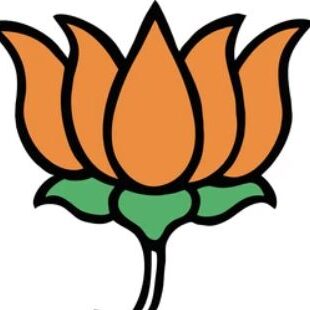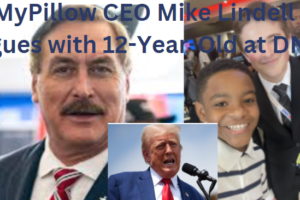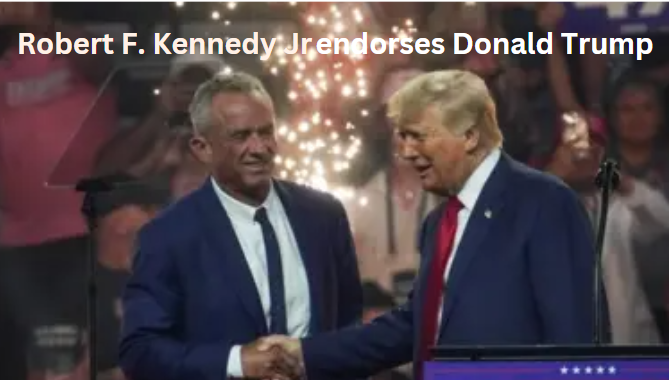The Implications of RFK Jr.’s Endorsement for the Republican Party

With Robert F. Kennedy Jr.’s surprise decision to suspend his independent presidential campaign and endorse Donald Trump, the Republican Party finds itself in an intriguing and complex position. While the move may provide a slight boost to Trump’s campaign, particularly among certain demographics, it also carries potential risks that could alienate some voters and create new challenges for the party.
One of the key factors to consider is the source of RFK Jr.’s remaining support and where those voters will go now that he is out of the race. According to a USA TODAY/Suffolk University poll conducted in June, 32% of Kennedy supporters would back Trump as their second choice, while only 18% would choose Kamala Harris. This suggests that Trump may be able to pick up a decent chunk of RFK Jr.’s supporters, especially among white, male, and older voters who were drawn to Kennedy’s anti-establishment message and skepticism of the two-party system.
However, Merrill Matthews, a scholar at the conservative Institute for Policy Innovation, cautions that the impact may be marginal given Kennedy’s declining poll numbers in recent months. David Paleologos, director of the Suffolk University Political Research Center, echoes this sentiment, stating that RFK Jr.’s exit has “very little impact in the national polling” and that the real question is what the effect will be in the swing states, which he believes will be “probably marginal.” Swing states like Pennsylvania and Arizona, where RFK Jr. was polling in the low single digits, may see a slight uptick in Trump support, but it is unlikely to be a game-changer.
One potential risk for Trump is that RFK Jr.’s endorsement could reinforce the perception of the Republican ticket as “weird” and out of the mainstream, particularly among independent and moderate voters. Democrats are already working to portray the Trump-RFK Jr. alliance as such, and Kennedy’s controversial anti-vaccine stance could provide ammunition for these attacks. Jen O’Malley Dillon, the Harris campaign chair, has suggested that RFK Jr.’s endorsement could be a “gift” for the Democrats, allowing them to paint Trump as the candidate of “kooks, anti-vaxxers and conspiracy nuts.”
Geoff Garin, a Democratic pollster, echoes this sentiment, noting that RFK Jr.’s support has dwindled to about 2% or 3% in polls conducted by his firm, Hart Research, while “his negatives have skyrocketed.” He suggests that Kennedy’s endorsement could backfire by further confirming Trump as the candidate of “kooks, anti-vaxxers and conspiracy nuts.”
Despite these concerns, the Trump campaign remains optimistic about the potential benefits of RFK Jr.’s endorsement. Tony Fabrizio, a pollster for the Trump campaign, has circulated a memo stating that RFK Jr.’s exit is “good for President Trump and his campaign—plain and simple.” The campaign likely hopes that RFK Jr.’s name recognition and appeal to anti-establishment voters will help to energize the base and potentially attract some independents and disaffected Democrats.
As the 2024 election season continues to unfold, the implications of RFK Jr.’s endorsement for the Republican Party will become clearer. While it may provide a marginal boost to Trump in certain areas, it also carries risks that could alienate some voters and create new challenges for the party. The Trump campaign will need to navigate these waters carefully to maximize the potential benefits of this unexpected alliance while mitigating the potential downsides.
The implications of RFK Jr.’s endorsement for the Republican Party will continue to be a topic of intense discussion and analysis as the 2024 election approaches. With the potential for both benefits and risks, it remains to be seen how this development will ultimately impact the race and the future of the GOP.
Related











